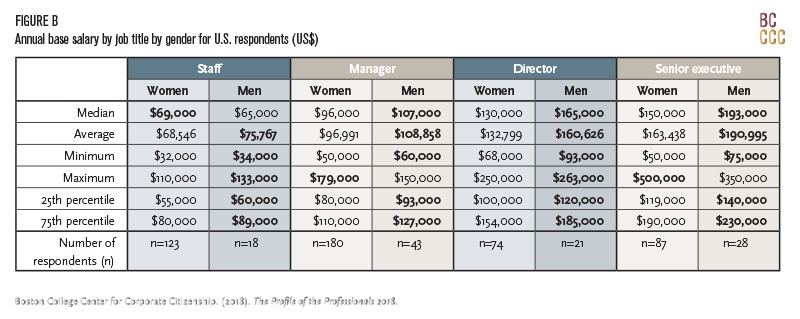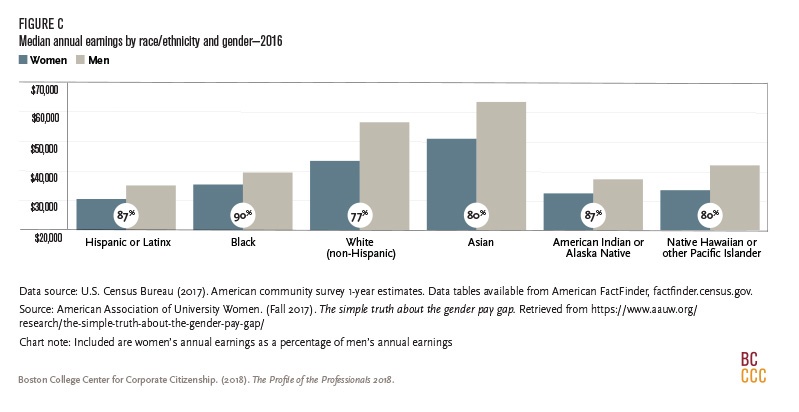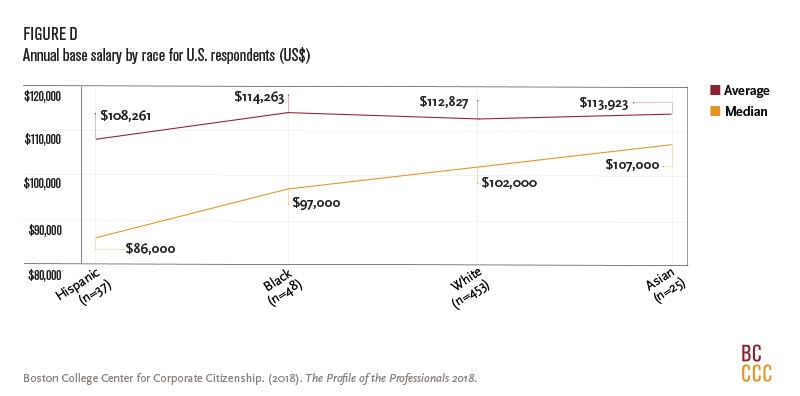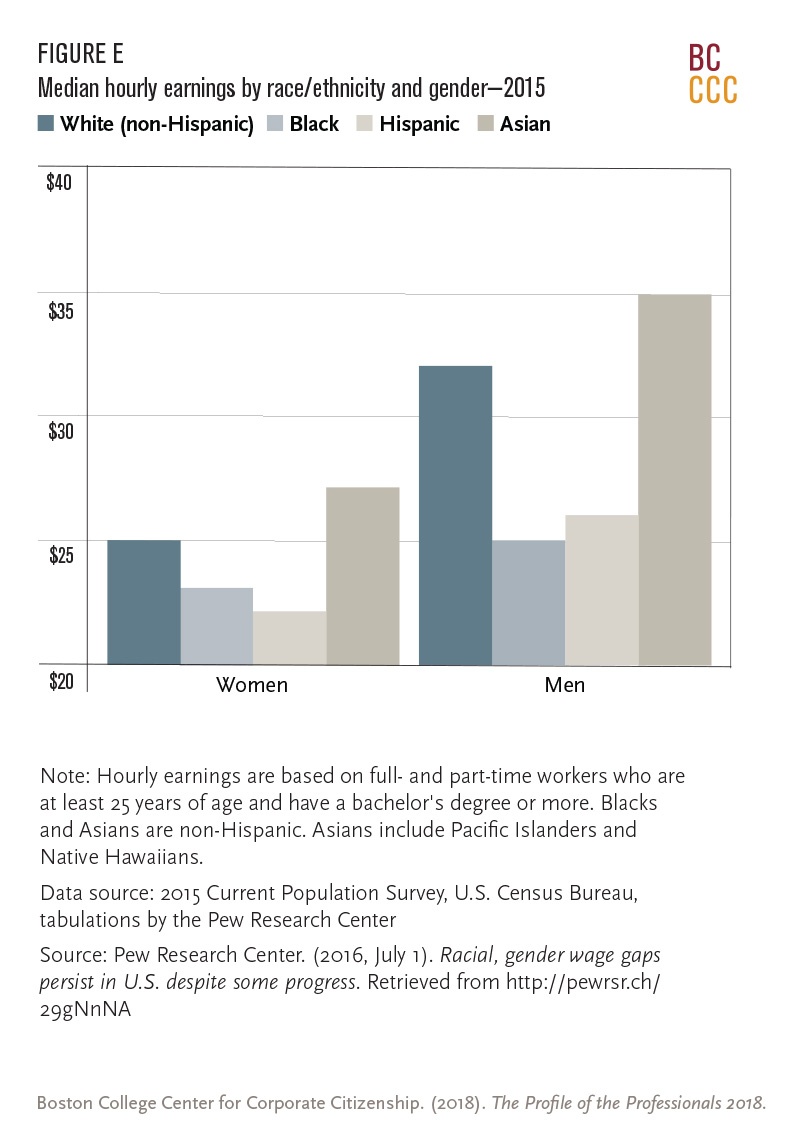The merits of diverse and inclusive workforces are well-documented. They drive innovation, bolster financial performance, capture new markets, and increase customer loyalty.[1] Fair and equal compensation is the prerequisite of cultivating an inclusive company culture, and is an issue that is receiving attention increasingly from policymakers, corporate leaders, and the popular media.
The negative effects of inequality are felt across our entire economy. As income and wealth become concentrated at the top, fewer can participate fully in the economy. This hampers growth at all levels. The American Dream, once thought to be a birthright, has proven to be available more readily to children of the educated and affluent than to others.[2] Income equality is a corporate citizenship and economic imperative. Corporate citizenship is not what happens in the corporate citizenship department. Good corporate citizenship is reflected across the operations of the company in how the company exercises as an entity its rights, responsibilities, obligations, and privileges
Research shows that racial and gender income inequality affects every country, industry, and field. For example, respondents to the Boston College Center for Corporate Citizenship’s Profile of the Professionals 2018 study report that women fill most corporate citizenship positions. Their representation drops off, however, in more highly compensated executive positions (see Figure A). Women respondents also reported earning less than their male counterparts, and receiving lower bonuses (See Figure B).
.jpg)

This finding is consistent with what is observed among U.S. workers as a whole. Across the board, women make less than men.[3] The pay gap not limited to gender. Black, Hispanic, and American Indian/Alaska Native workers—all earn less than their White and Asian colleagues. Within each of those demographics, women make less than men (see Figure C). The Profile of the Professionals 2018 study reports similar findings, with Black and Hispanic respondents reporting lower median annual incomes than their White and Asian peers (see Figure D).



The pay gap is not a reflection of educational attainment or job choice alone. A recent study by Pew Research Center finds that—even when controlled for education and role type—White men still out-earn most of their non-White and non-male peers (see Figure E).[4] To address these pay gaps, many companies are beginning publicly report their wage and demographics information. In fact, many companies operating in Europe are now required to do so as part of the European Union’s Directive 2014/95/EU. Many companies are also beginning to adopt formal programs and policies to address wage gaps. Some, such as Adobe, have already achieved gender pay parity.
Companies are working also to address the many levels of unconscious bias that lead to the unfair treatment of underrepresented employee groups. Some companies, such as Google, have a formal unconscious bias training program, while others are working to limit the potential effects of bias by updating recruiting and promotion practices, including removing the names of candidates from resumes and performance evaluations and banning salary history questions.
While many of these efforts are the purview of human resources departments, corporate citizenship professionals can support income equality by helping to keep colleagues abreast of trends in policy and practice and by supporting initiatives that help to reduce bias and increase equality (such as mentoring programs and employee resource groups (ERGs)), which allow employees to understand and realize their opportunities and potential.
Corporate citizenship practitioners may partner with their HR counterparts and use traditional citizenship activities such as volunteering to help build and foster relationships within the groups and encourage participants so that they realize the benefits of networking and collaboration.
Here at the Boston College Center for Corporate Citizenship, we’re working to provide you with the resources to help you create inclusive environments that recognize and reward your employees equally. As you continue your important work creating a sustainable and prosperous future for us all, I encourage you to take advantage of our upcoming Advancing Diversity and Inclusion Through Strategic Corporate Citizenship course, as well as our networking opportunities and research, including the Diversity & Inclusion and Corporate Citizenship 2016 report, and a number of recent research briefs, including:
[1] Boston College Center for Corporate Citizenship. (2016). Diversity & inclusion and corporate citizenship. Boston: The Boston College Center for Corporate Citizenship.
[2] Alesina, A., Stantcheva, S., & Teso, E. (2018). Intergenerational mobility and preferences for redistribution. American Economic Review, 108(2), 521-54.
[3] American Association of University Women. (Fall 2017). The simple truth about the gender pay gap. Retrieved from https://www.aauw.org/research/the-simple-truth-aboutthe-gender-pay-gap/
[4] Pew Research Center. (2016, July 1). Racial, gender wage gaps persist in U.S. despite some progress. Retrieved from http://www.pewresearch.org/fact-tank/2016/07/01/ racial-gender-wage-gaps-persist-in-u-s-despite-some-progress/